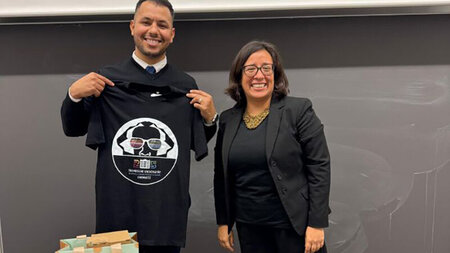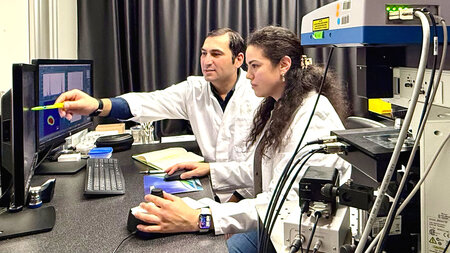Current projects
JenErgieReal
"Real laboratories of the energy transition" - energy-optimized quarters
Project duration: 01/01/2022 – 12/31/2026
short description
The research and transfer project JenErgieReal sees itself as a blueprint for the future holistic supply of electrical and thermal energy and the integration of mobility as a link.
The main drivers of energy consumption in transport, industry, commerce and housing are considered across sectors and the implementation is scientifically accompanied in an exemplary large-scale project.
The overall goal of JenErgieReal is the demonstration of sector coupling through innovative power plant structures for the realization of an affordable energy transition. The central topics of the JenErgieReal project focus on grid utility and aim at grid stabilization without grid expansion. Measures that make this possible include load peak smoothing, load control, also from the upstream network, and reduced feed-in.
In the various work topics, solutions for future quarters from the end consumer to the producer are developed and implemented. Regulatory learning plays an important role in this.
The results will be demonstrated as a real laboratory in the city of Jena.
subproject at the chair
Duration: 07/2023-04/2024
Support for the project partners at the Zwickau University of Applied Sciences and the Ernst Abbe University Jena in the planning, conception and organization of the empirical surveys, the theory-based evaluation and the preparation of the results for publication in scientific specialist literature.
contact person
project partner
- City administration of Jena
- Stadtwerke Jena Netze GmbH
- Stadtwerke Energie Jena Pößneck GmbH
- jenawohnen GmbH
- AWO Regionalverband Mitte-West-Thüringen e.V.
- Metrona Union GmbH
- Westsächsische Hochschule Zwickau
- Ernst-Abbe-Hochschule Jena
- TU Chemnitz

publications
- Bucher, J., Leonhardt, S., Hempel, T., Teich, T., Hüsig, S. (2025). Innovationsbarrieren in Forschungs- und Transferprojekten: Eine Fallstudie über Reallabore der Energiewende. In: Leonhardt, S., Neumann, T., Kretz, D., Teich, T., Bodach, M. (eds) Innovation und Kooperation auf dem Weg zur All Electric Society. Springer Gabler, Wiesbaden.
https://doi.org/10.1007/978-3-658-46895-8_22 - Bucher, J., Brauer, F. (2025). Folgen statt Führen? Eine explorative Studie zum Innovations- und Technologietransfer zwischen Start-Ups und mittelgroßen deutschen Energieversorgern. In: Leonhardt, S., Neumann, T., Kretz, D., Teich, T., Bodach, M. (eds) Innovation und Kooperation auf dem Weg zur All Electric Society. Springer Gabler, Wiesbaden.
https://doi.org/10.1007/978-3-658-46895-8_2 -
Leonhardt, S., Neumann, T., Kretz, D., Teich, T., Bodach, M. (eds) Innovation und Kooperation auf dem Weg zur All Electric Society. Springer Gabler, Wiesbaden.
https://link.springer.com/book/10.1007/978-3-658-46895-8
📄 Flyer for the book (PDF)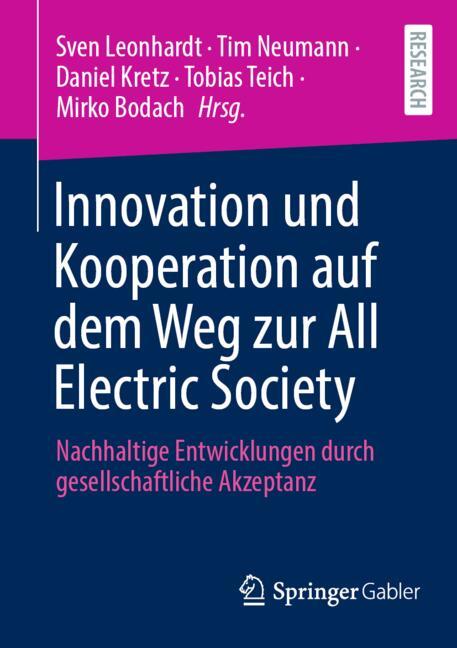
QuaSiSocI – Quality assurance in social innovations
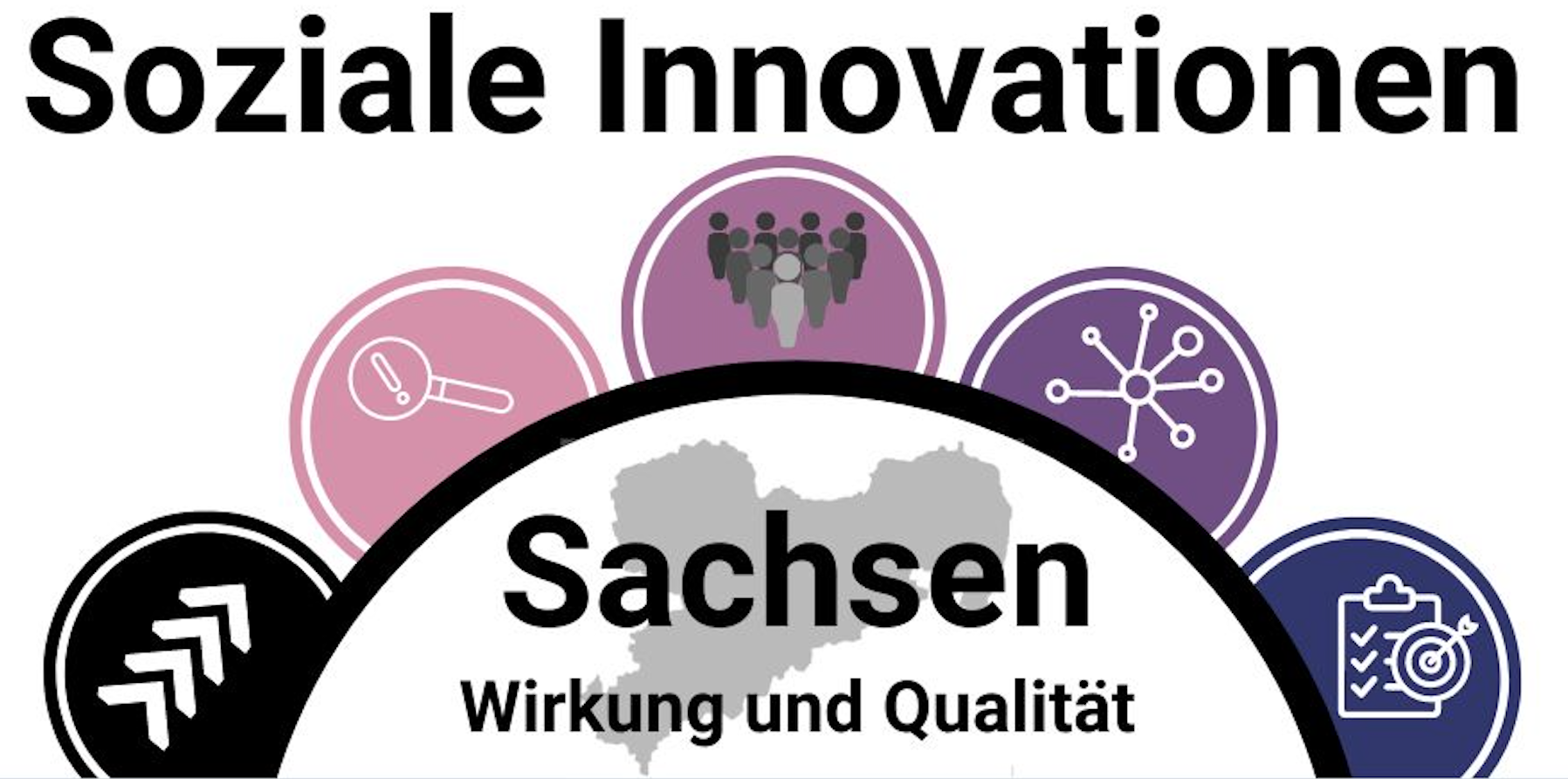
Our basic understanding of social innovations
Social innovations are innovations that address social challenges and in a process devise, test, evaluate and finally embed new social practices for a specific social group. Social innovations often have a regional reference and are embedded in the existing political, cultural and economic system, which can influence the development of social innovations and thus promote, slow down or prevent it. Social innovations go through a multi-stage process until they are finally applied to the target group. Whether and how new new social practices are can be viewed from different perspectives. Here, for example, the target group, the organization offering them or the region can be used to decide whether they are new in this context and what is new about them.
Relevant scientific perspectives on the topic of quality assurance of social innovations
Quality assurance and impact measurement of social innovations and their concrete implementation are current scientific questions that also have high practical relevance. Various theoretical concepts can be used to assess the quality of social innovations. We understand quality assurance of social innovations as an overarching perspective that consists of the delimitation of social innovation, its development in individual phases, the assessment of novelty and the evaluation of input, output, outcome and impact. A first step is to record what defines social innovations, characterizes them and distinguishes them from other types of innovation. This allows practical projects to be assigned, for example, based on their connection to a specific social problem. With the help of a phase model for the process of social innovations, practical projects can be classified with regard to their development, whether they are in the idea, conception, testing or scaling phase or are already being used. The phase perspective can be used to assess whether the practical projects are progressing in their development and what support needs they communicate, receive and accept in the phases. The maturity levels of social innovations make it possible to determine for whom practical projects are new and how new they are. This also allows practical projects to be compared with one another or assessed in terms of their context specifics. In addition, impact measurement aspects can be focused on, for example, those that deal with the impact on society. This also includes identifying input factors that have already been identified, for example, when assessing the phases of social innovation. With regard to output, outcome and impact, connections can be drawn to the social problem, the starting point of social innovations, or to the maturity level and the novelty of a practical project.
Projektpartner
Projektlaufzeit
01.06.2024 - 31.12.2025
Ansprechpartner
Chemnitz-Lviv learning bridge 2025
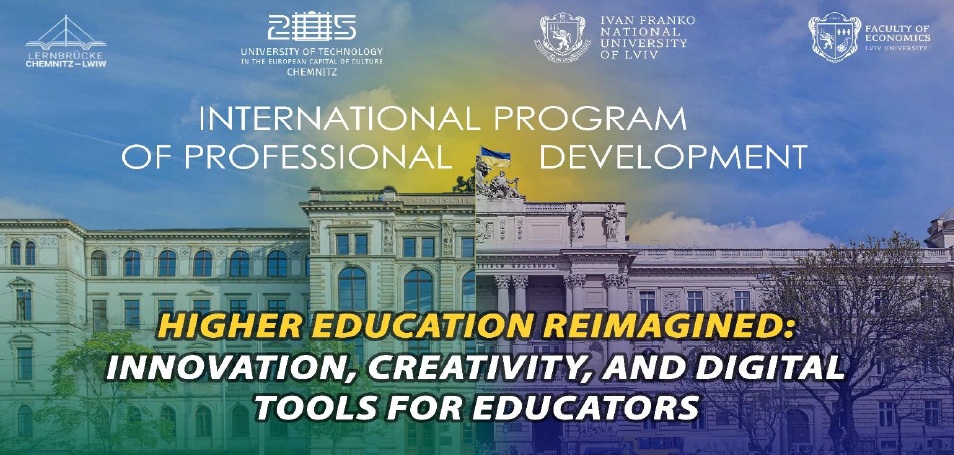
PROFESSIONAL DEVELOPMENT PROGRAMME “HIGHER EDUCATION REIMAGINED: INNOVATION, CREATIVITY, AND DIGITAL TOOLS FOR EDUCATORS”
Clients: UNIVERSITY RESEARCHERS, ACADEMIC, AND ADMINISTRATIVE STAFF
Project duration: 16/09/2025 – 08/10/2025
Short description and teaching objectives
Within the framework of the Chemnitz-Lviv 2025 Learning Bridge, this subproject focuses on the professional development of scientific, academic, and administrative staff. Participants from Ukrainian universities will gain comprehensive insights into the interplay of creativity and innovation in the context of digital transformation. The aim is to promote the professional development of participants by expanding their understanding of teaching and learning methodologies and tools, enabling them to adequately address the numerous requirements of the diverse stakeholders in the digitalized educational landscape.
📄 Program overview and schedule (PDF)Project partners
- Marianna Kichurchak (Programme Coordinator)
- Ivan Franko National University of Lviv
- TU Chemnitz
Teaching Staff
Ivan Franko National University of Lviv
- Marianna Kichurchak, Professor at the Department of Economy of Ukraine
- Nazar Demchyshak, Professor at the Department of Finance, Money Circulation and Credit
- Marianna Kokhan, Associate Professor at the Department of Management
- Iryna Paslavska, Associate Professor at the Department of Economic Cybernetics
TU Chemnitz
- Dr. Julien Bucher, Chair of Innovation Research and Technology Management, TU Chemnitz
- Diana Heinbucher, M.Sc., Chair of Innovation Research and Technology Management, TU Chemnitz
- Klaus Etteldorf, M.Sc., Chair of Vocational and Business Education, TU Chemnitz
Financial support
Funded within the framework of the project “Learning Bridge Chemnitz-Lviv 2025” in the “Ukraine digital” program of the DAAD and by the Federal Ministry of Education and Research, supported by the Harald Christ Foundation for Democracy and Diversity and the Center for International Cooperation in Lviv.
Contact person






